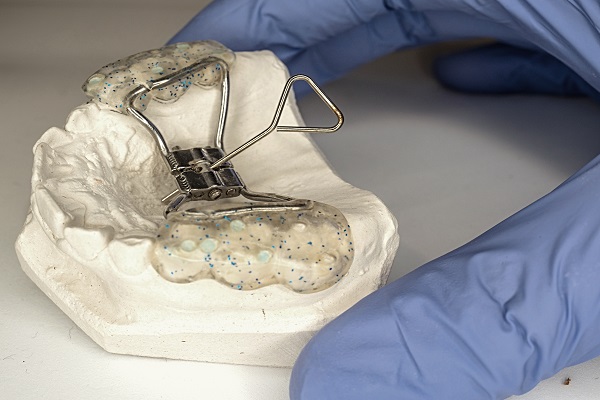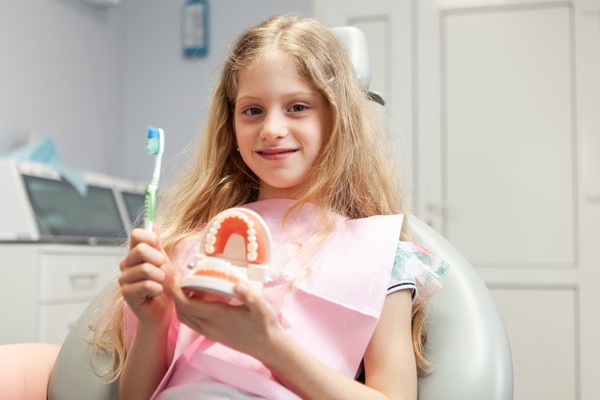Orthodontic Expanders: Commonly Asked Questions

Orthodontic expanders optimize most of a child's natural teeth growing process by correcting or stopping malocclusions or misalignment. By progressively broadening the upper jaw, the palate expander assists an orthodontist in creating extra room in a child's mouth. Although the appliance may appear or sound intimidating at first, it works gradually and painlessly. Discover the answers to five questions that parents often ask about orthodontic expanders.
What is an orthodontic expander?
An orthodontic expander is a customized orthodontic device that fits over several upper teeth at the rear of the mouth. The device consists of two sides that are screwed together in the middle. Each day, a specific key is used to initiate the turn screw. The palatal bones start to expand and drift apart slowly. The appliance will stay in the mouth for about three to six months after getting the necessary expansion, so new bone can develop in the space and stabilize the development.
Why is it necessary?
There are three instances in which a child's palate may need to be expanded.
Crossbite: For an abnormally small upper jaw that fails to connect properly with the lower jaw, the rear top teeth will align inside instead of outside the lower teeth. A patient with a narrow palate may have a crossbite, and this can lead to unequal lower jaw development, which if not rectified, can cause facial asymmetry.
Overcrowding: A pediatric dentist can tell if there will be adequate room for a child's permanent teeth even before they fully emerge. Without having to pull any teeth, they can make room by broadening the upper jaw.
Impacted teeth: An impacted tooth is one that has not yet erupted but is obstructed by other teeth. The canines are the most usually affected. The upper jaw can be widened to provide enough room for a tooth to slip down into the right place independently.
Breathing Problems: Breathing via the nose might be challenging for a child with a narrow or deep upper jaw. Constant mouth breathing results in unfiltered bacteria inhalation, dry mouth, and other health problems.
How can one adjust an expander?
It is the responsibility of the parent or guardian to turn the orthodontic expanders at the intervals recommended by the orthodontist once it has been implanted in the child's mouth. The device's rotation is what expands the upper jaw. Aside from the set of instructions, the child's dentist will provide a specially designed key that fits into an opening in the device.
What are the common side effects?
As the upper jaw extends and widens, orthodontic expanders can cause discomfort and pain. Other side effects include jaw ache, headaches, sinus pressure, speech difficulties, high saliva production, and a gap between the front teeth. Food particles can also get lodged between the device and the roof of the mouth.
In conclusion
If you think that your child might benefit from orthodontic expanders, talk to the pediatric dentist. Book an appointment today to get started.
Request an appointment here: https://www.starkidsdental.com or call Star Kids Dental & Orthodontics at (818) 483-9064 for an appointment in our Burbank office.
Check out what others are saying about our services on Yelp: Read our Yelp reviews.
Recent Posts
Dental fillings for children play a crucial role in restoring teeth affected by cavities or minor damage. When detected early, cavities can be treated quickly and effectively with a filling, preventing further decay and preserving the natural tooth. Pediatric dentists utilize techniques and materials specifically designed for children to ensure safety, comfort, and long-lasting results.Tooth…
If your child has misalignments or crooked teeth, you may be wondering what the options are. A pediatric orthodontist can answer all your questions and recommend the right treatment plan. You may have a lot of questions before diving into orthodontic treatment, and there are certain ones that you should ask at the consultation. A pediatric…
Infants can benefit from seeing a pediatric dentist when primary teeth begin to erupt. Primary teeth are placeholders for permanent teeth and should receive the same attention, including appropriate home care. Primary teeth are crucial to a baby's health and development. Therefore, dentists encourage parents to begin an infant's oral hygiene routine as soon as possible…
Dental sealants are thin coatings that are applied to the chewing surfaces of the back teeth to prevent decay. Grooves and pits in these teeth make them susceptible to cavities because they may collect food and bacteria. Sealants for the teeth are an easy and painless technique to protect young ones' teeth from decay. This…


